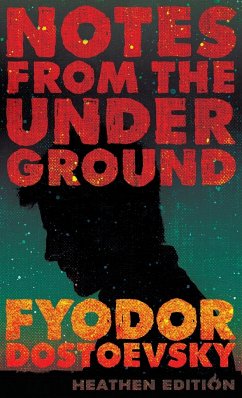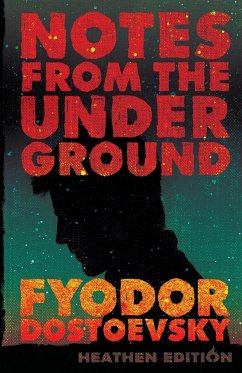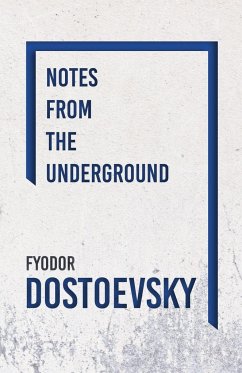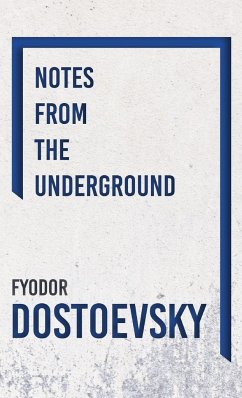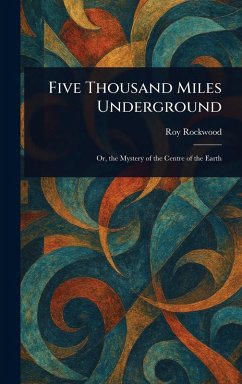
Notes From Underground
Versandkostenfrei!
Versandfertig in 1-2 Wochen
15,99 €
inkl. MwSt.

PAYBACK Punkte
8 °P sammeln!
Notes from Undergroundalso translated as"Notes from the Underground" or "Letters from the Underworld"is an 1864 novella by Fyodor Dostoevsky, and is considered by many to be one of the first existentialist novels. Notes from the Underground is a fictional, first-person confession told by a hateful, hyper-conscious man living underground who is a retired civil servant living in St. Petersburg.The first part of the story is told in monologue form through the Underground Man's diary, and attacks contemporary Russian philosophy, especially Nikolay Chernyshevsky's What Is to Be Done?.[2] The second...
Notes from Undergroundalso translated as"Notes from the Underground" or "Letters from the Underworld"is an 1864 novella by Fyodor Dostoevsky, and is considered by many to be one of the first existentialist novels. Notes from the Underground is a fictional, first-person confession told by a hateful, hyper-conscious man living underground who is a retired civil servant living in St. Petersburg.The first part of the story is told in monologue form through the Underground Man's diary, and attacks contemporary Russian philosophy, especially Nikolay Chernyshevsky's What Is to Be Done?.[2] The second part of the book is called ""Apropos of the Wet Snow"" and describes certain events that appear to be destroying and sometimes renewing the underground man, who acts as a first person, unreliable narrator and anti-hero.






